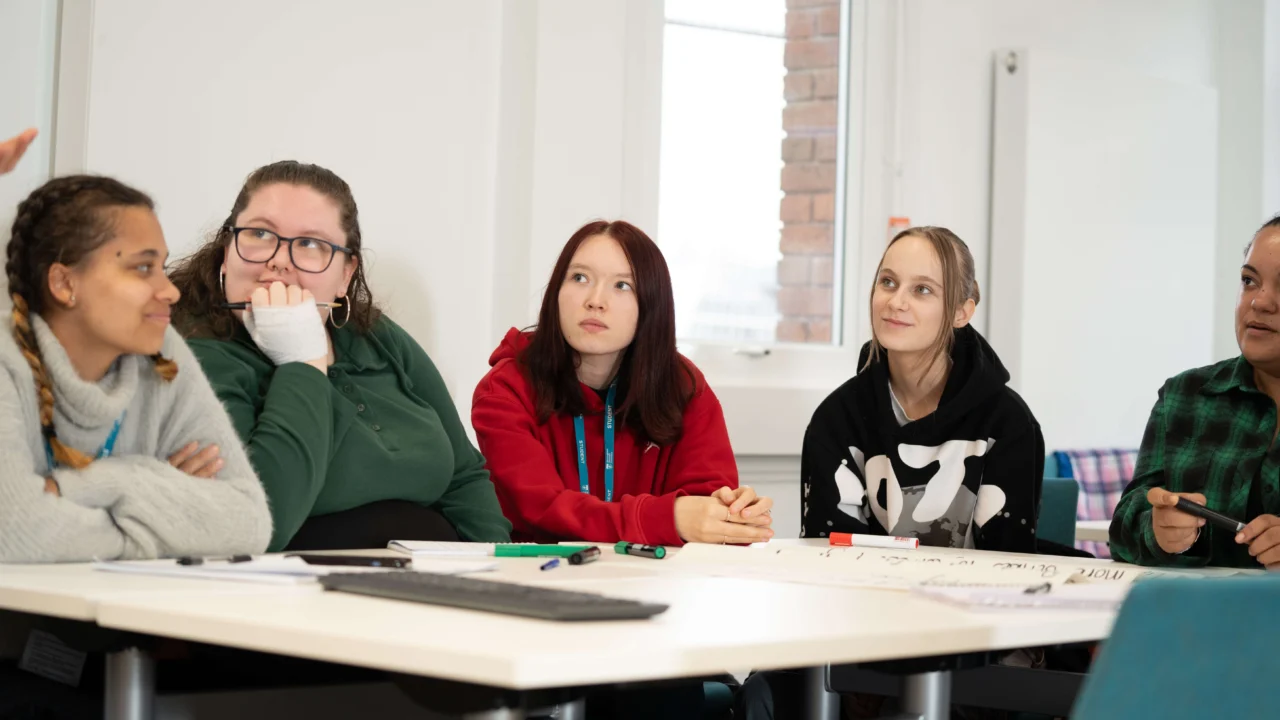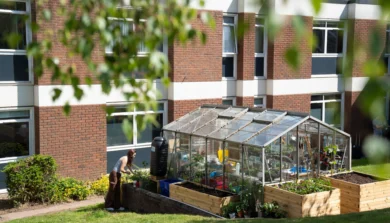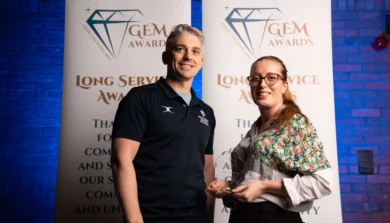BA (Hons) Primary Education (3-11) with QTS – FD Progression
Foundation
- Start date
- –
- Study mode
- –
- Course length
- –
- UCAS Code
- –

Interested in a different start date?
The Programme
Choosing to become a Primary Teacher is your first step to inspiring children in learning about their world and here at Birmingham Newman University, we would love to support you on this journey. We understand that the Primary 3-11 age range is a crucial time for children’s development and learning. It is at this formative and particularly receptive stage of development that attitudes towards learning are formed, attitudes that will impact future life course development.
During your Initial Teacher Education (ITE) course with us you will undertake a range of modules, which will equip you to become an effective and creative teacher across the full age range in order to achieve the professional standards required for Qualified Teacher Status (QTS).
The FD Progression (Top-up) route into teaching is suitable for candidates who have successfully completed study at level 4 and 5 in a related subject. Candidates for this route will already have placement experience of up to 80 days within the Primary or Early Years phase. A significant proportion of this experience will have been planning and delivering lessons within the National Curriculum or the Early Years Foundation Stage framework.
For those wishing to work within Catholic schools, or who wish to develop their understanding of Religious education, there is also the opportunity to undertake the Catholic Certificate in Religious Studies (CCRS) – see Additional Information for details.

Got a question you’d like to ask?
Entry requirements
We welcome students from all backgrounds and accept a wide range of qualifications. If yours aren’t listed, don’t worry – our Admissions Team can help you explore your options. See full entry requirements.
Entry requirements
UK home students
The FD Progression (Top-up) route into teaching is suitable for candidates who have successfully completed study at level 4 and 5 in a related subject. Candidates for this route will already have placement experience of up to 80 days within the Primary or Early Years phase. A significant proportion of this experience will have been planning and delivering lessons within the National Curriculum or the Early Years Foundation Stage framework.
GCSE English Language, Mathematics and Science at grade 4 (or C) or above (or recognised equivalents). Please be aware that whilst these GCSEs are not mandatory at application point, these qualifications must be obtained by enrolment. See our page on additional GCSE Equivalency test information.
Students will also be required to be assured against a set of fundamental maths and English skills by the end of their initial teacher training.
Having experience in a school will support your preparation for training as a teacher.
At interview you will be given the opportunity to discuss any relevant school experience or opportunities that you have had to work with school aged children.
You will need to obtain Disclosure and Barring Service (DBS) and Occupational Health clearance and meet the requirements for fitness to train to teach prior to starting the course.
For equivalencies and further details, search 'How to apply' from our menu in the top right of our home page. Click Menu > Study > How to apply > How to apply
Please contact Admissions if you have any questions.
Course fees
The tuition fee for academic year 2026/27 is: £9,790. Tuition fees for courses starting April to May 2026, fall within the 2025/26 academic cycle.
Fees for the 2025/26 academic year can be found on our Student Finance pages.
Additional costs
The University will review tuition fees and increase fees in line with any inflationary uplift as determined by the UK Government, if permitted by law or government policy, in subsequent years of your course. It is anticipated that such increases would be linked to RPI (the Retail Price Index excluding mortgage interest payments).
Check out our blog/news/events

Birmingham Newman Celebrates Green Week 2026 with Campus‑Wide Events
Birmingham Newman will host its annual Green Week from 23 to 27 February 2026, bringing…

Research that makes a difference: Mark Holland wins Most Impactful Project Award
In December, we held our Staff Awards, where we recognised the outstanding achievements of colleagues…

Sports Coaching students Deliver Coaching Sessions for Local Primary Pupils
Birmingham Newman University recently welcomed pupils from St Peter’s Primary School to campus as part…

Vice-Chancellor Professor Jackie Dunne awarded MBE in New Year Honours
Vice-Chancellor of Birmingham Newman University receives an MBE for services to Higher Education.

Birmingham Newman University Celebrates Staff Achievements at Annual Awards
Birmingham Newman University celebrates its staff at the Annual Staff Awards Celebration.

Book an open day
Find out about our next open day. Book now to secure your place.
Placement information
In the second year of the undergraduate programme, trainees undertake a placement within Special Educational Needs and Disabilities (SEND) or alternative provision. This experience broadens their understanding of inclusive practice and supports the development of skills for meeting diverse learner needs. It also provides valuable insight into specialist education pathways, helping trainees to explore potential future roles within SEND and alternative education contexts.

What careers can I consider
Birmingham Newman Initial Teacher Education graduates have a high employment rate and are well respected in the region and beyond. Most students take up a position in teaching, although some pursue other careers using the range of transferable skills gained during study. Our graduates have secured employment in a variety of settings and many roles such as subject lead, senior leadership, international posts and consultancy.
On successful completion of the course including demonstrating the required teaching standards, you will be recommended for Qualified Teacher Status with the Department for Education, who confirm QTS, ready to start your first teaching job. After your successful completion of the BA (Hons) you will also be invited to enrol on the Master’s programme here at Birmingham Newman University to support your continued professional development.
Courses we think you'll also like

PGCE Primary (3-11) with recommendation for QTS
- Start date:
- September 2026

PGCE Secondary Religious Education with recommendation for QTS
- Start date:
- September 2026

BA (Honours) Secondary Education Physical Education 11-16 with Post 16 enhancement (with recommendation for QTS)
- Start date:
- September 2026

BA (Honours) Secondary Education Humanities (History, Geography and RE) 11-16 with Post 16 enhancement (with recommendation for QTS)
- Start date:
- September 2026
